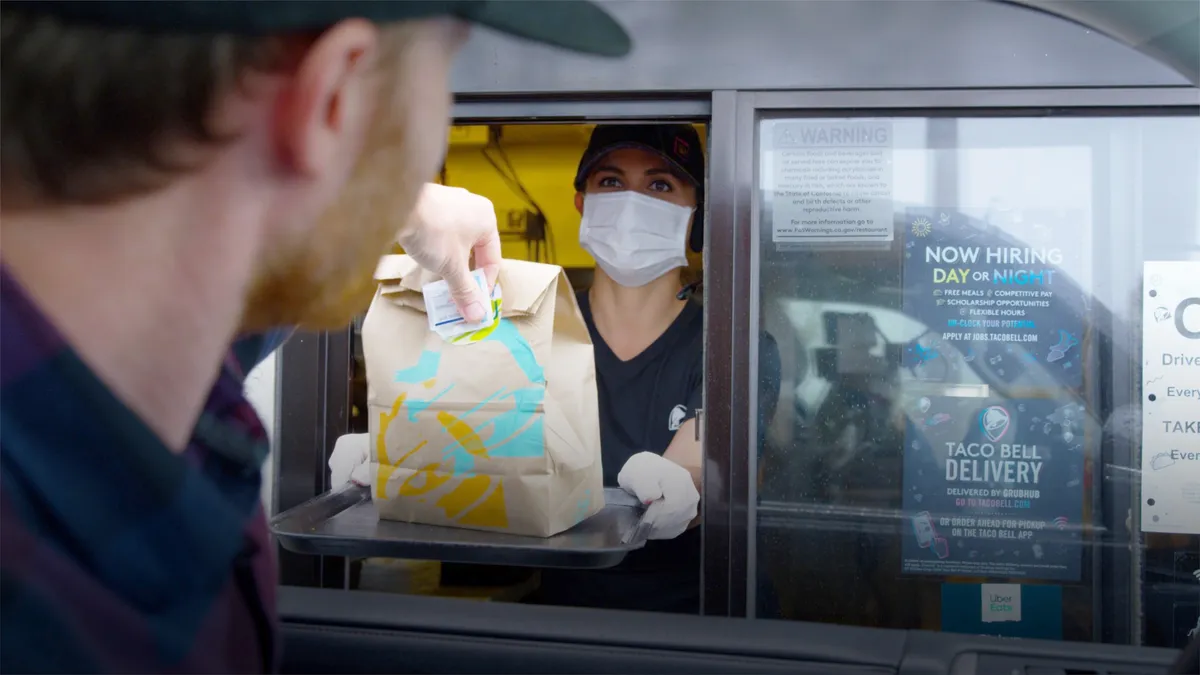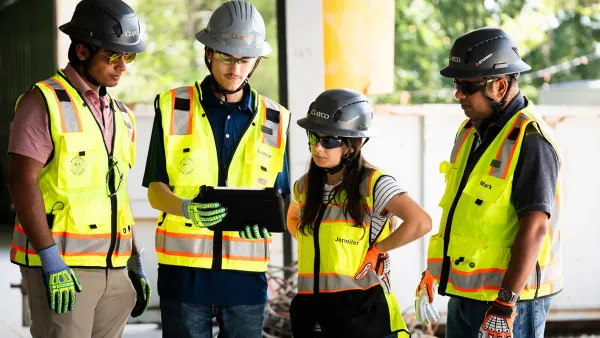Dive Brief:
- More than 400 U.S. Taco Bell restaurants hosted socially-distanced hiring parties Nov. 10 in preparation for the fast food chain's holiday hiring push, according to an email sent to HR Dive.
- In an update to the hiring party format, which Taco Bell originally launched in 2018, each event was hosted outdoors in restaurant parking lots or patios, and tables, chairs and tents were placed at least six feet apart. Offerings varied by location, but a company spokesperson confirmed in an email that all company-owned restaurants also offered free food at the hiring parties hosted Nov. 10.
- The spokesperson said Taco Bell aimed to hire more than 2,000 people from hiring party events hosted at company-owned restaurants this year, but noted that the total number of hires could be higher due to the participation of franchise restaurants. Taco Bell hired for both part-time and full-time positions, including management positions, at the events.
Dive Insight:
This year's version of the hiring party format contends with an environment that differs significantly from the one in which Taco Bell launched the concept. In 2018, amid low unemployment and an "extremely competitive job market," the company sought to differentiate itself from competitors, a former executive told HR Dive at the time.
But Taco Bell said it still sees an opportunity to expand its talent strategy despite the changing nature of the job market during an economic downturn. "We want candidates to know that Taco Bell is a great place to start, maybe as a first job for a few months, or stay and grow their career," the spokesperson said. "This may be especially appealing for students who find themselves at home, looking for part time or full time work as COVID-19 has affected campus schedules."
Younger workers have been hit particularly hard by the pandemic. In May, a report by HR management software firm Gusto found small business workers under the age of 25 had experienced a 93% higher rate of layoffs than those age 35 and older. Nationally, workers age 16 to 24 continue to experience unemployment at higher rates than their peers over the age of 25, according to data from the U.S. Bureau of Labor Statistics.
HR leaders who spoke to HR Dive last month noted that employers seeking to protect talent pipelines may need to adjust expectations when hiring younger workers. For example, recruiters might look for candidates who demonstrated leadership by helping younger siblings with at-home learning, or by participating in a virtual volunteer group, rather than a summer job.
Compliance is also important to consider when hiring new employees during this time, especially in the Americans with Disabilities Act context. In a recent webinar, the National Employment Law Institute's David K. Fram cautioned against performing temperature checks on job applicants before a job offer is made, for example, because such checks may constitute medical exams under the ADA.











